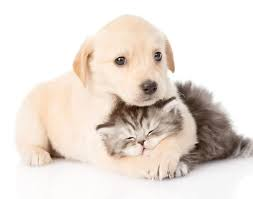Silver Sands Veterinary Center-A Zoonosis: Toxocariasis and the Human Animal Bond
Adapted from The Center for Disease Control Fact Sheet
01May2013
Donald H. DeForge, VMD
We have reached the beginning of Spring 2013 and it is time to enjoy that special bonding between companion animal and pet owner. It is an exciting and happy time of year when pets and people bond to their fullest.
Many people do not realize that there is a zoononsis called Toxocariasis that can affect not only their pets but also the pet owners by contact with pet feces. It is a parasitic disease in people caused by infection with a roundworn, Toxocara, found in dog and cat feces. Zoonoses are: Diseases which are biologically adapted to and normally found in lower animals but which under some conditions also infect humans.
The Center for Disease Control in their FACT SHEET, Toxocariasis, describes in detail how pet owners can develop this disease from their pets. Toxocariasis is a very serious illness which can cause organ damage and even blindness in people who are infected. Those at highest risk are children; dog and cat owners; and people and kids who accidentally eat dirt. Dogs and cats can shed Toxocara (i.e. roundworm) eggs in their feces; people can be accidentally infected by eating or swallowing dirt that has been contaminated with Toxocara eggs; although rare people can also become infected by eating under cooked meat that has Toxocara larvae. Children who handle and eat pet feces are easily infected!
Here are suggestions from myself, Dr. Don DeForge and the CDC on how to prevent Toxocariasis:
- First, especially, if you have children discuss Toxocariasis as a zoonosis with your pediatrician and/or your health care physician
- If your pet is infected call your pediatrician and/or health care professional immediately
- Second, ask your veterinarian to review Toxocariasis with you and to help you in the control of parasites in your dog or cat. Be sure to have a detailed discussion and have all of your questions answered
- Teach your children to wash their hands before eating and after playing with the pet they love
- Do not allow the pet to lick your children or yourself in the face
- Do not allow your very young children to eat dirt
- Avoid Pet Play Groups where feces is prevalent and many times not collected
- Restrict animal waste sites to areas away from child play areas
- Cover sand boxes
- Wear gloves when disposing of fecal matter; do it promptly. If not wearing gloves, wash your hands after handling pet feces
- Take your pet to the veterinarian and let the doctor explain the proper deworming programs
- Use your yearly Preventive Health Care Exam with your veterinarian to review any questions you have about parasites in the stool or feces of your pet. Bring a fecal sample for lab examination to this visit.
- Go to the Companion Animal Parasite Council website and read about deworming programs that are effective; remember one deworming is not a deworming program!
- Do not rely on negative fecal sample reports as a statement of complete health and freedom from Toxocariasis or other intestinal parasites; reports today are not truly negative but only written: no parasites seen. A deworming program is never based on a no parasite seen fecal report. Have your veterinarian explain why scheduled dewormings are essential.
- Ask your veterinarian to set up a testing and treatment plan that will prevent this zoonosis from infecting you, your family, and friends.
For more information go to parasites@cdc.gov
Dr. Don DeForge 01May2013
Animal Doc AM Multimedia
Blogger
Medical Director-Silver Sands Veterinary Center
www.SilverSandsVeterinary.com
17 Seemans Lane Milford, CT. 06460
1-800-838-3368
DonDeForge@aol.com
Questions are welcomed and will be answered by Dr. DeForge personally

Comments
Post a Comment